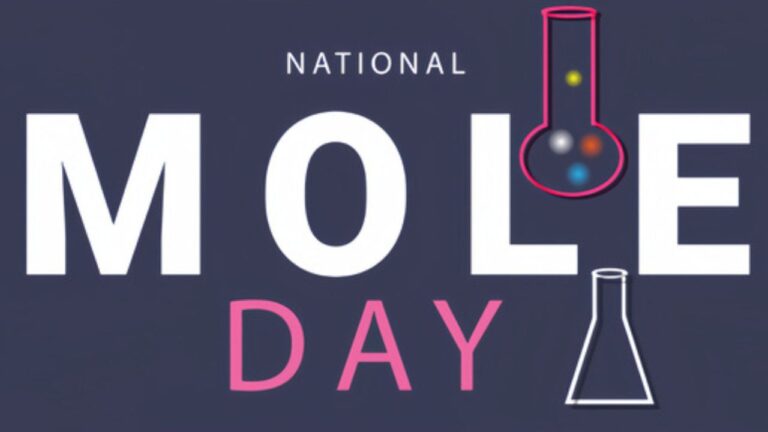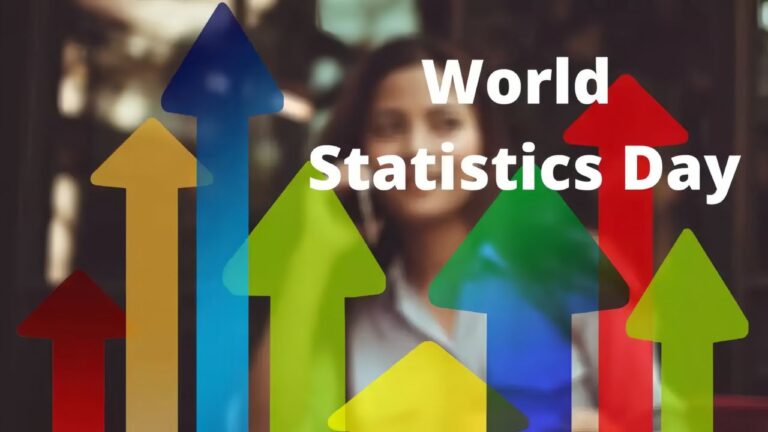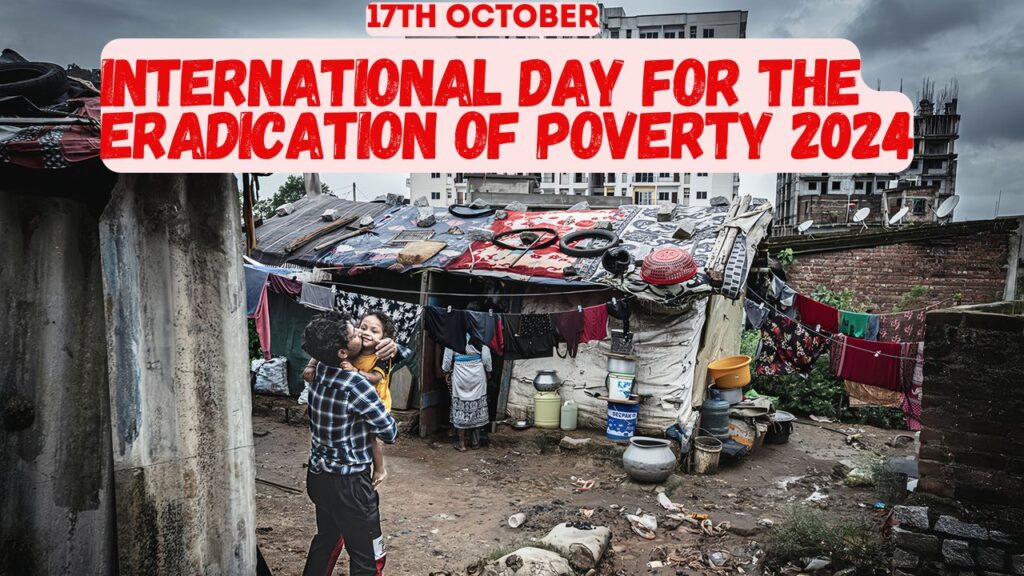
International Day for the Eradication of Poverty 2024: Every year on October 17, the world celebrates the ‘International Day for the Eradication of Poverty‘ to raise public awareness of the global problem of poverty and the urgent need to do something about it. This day brings attention to the challenges faced by those who are poor and highlights the importance of efforts being taken to completely eliminate it worldwide.
The occasion additionally highlights how poverty affects social justice, equality, and human rights. The day takes on various topics every year, encouraging individuals, organizations, and governments to work together to promote sustainable development and eradicate poverty.
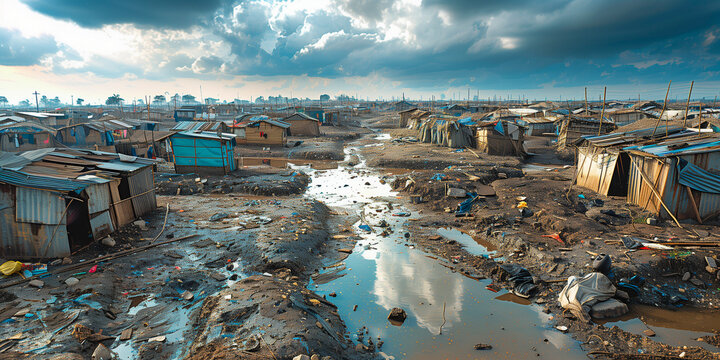
Origin of International Day for the Eradication of Poverty
The International Day for the Eradication of Poverty began on October 17, 1987, when over 100,000 people gathered at Paris’s Trocadéro—a site noteworthy for the 1948 signing of the Universal Declaration of Human Rights—to mark the day. They assembled to remember those who had died from hunger, poverty, and violence as well as to reinforce the idea that poverty is a violation on human rights.
Father Joseph Wresinski, a French Catholic priest and the founder of the ATD Fourth World Movement, an organization devoted to eradicating extreme poverty, was the main force behind the initiative.
Later, the International Day for the Eradication of Poverty was officially declared on October 17 by the UN General Assembly in 1992, highlighting the importance of the day on a global level. The purpose of this day is to spread awareness about the difficulties faced by the poor and to promote worldwide collaboration in addressing the root causes of poverty. It reminds us that social justice, sustainable development, and human dignity for all depend on the complete elimination of poverty.
Read More : 10 Strategies How Chatbots Can Increase ROI on Email Marketing
Why Eradication of Poverty is Essential?
It is essential for us to recognize and address global poverty for various reasons. First of all, poverty prevents people of basic human rights by prohibiting them from accessing necessities like food, clean water, housing, and education. By addressing the problem, we may consider the need to help millions of people living in poverty and inequality.
Promoting social and economic stability also requires addressing poverty. Poverty creates harmful cycles of misery which affect entire countries and populations by increasing rates of disease, criminal activity, and political instability. In the end, taking care of poverty helps foster the growth of a just, equal, and humane society which benefits not only the poor but also the entire population.
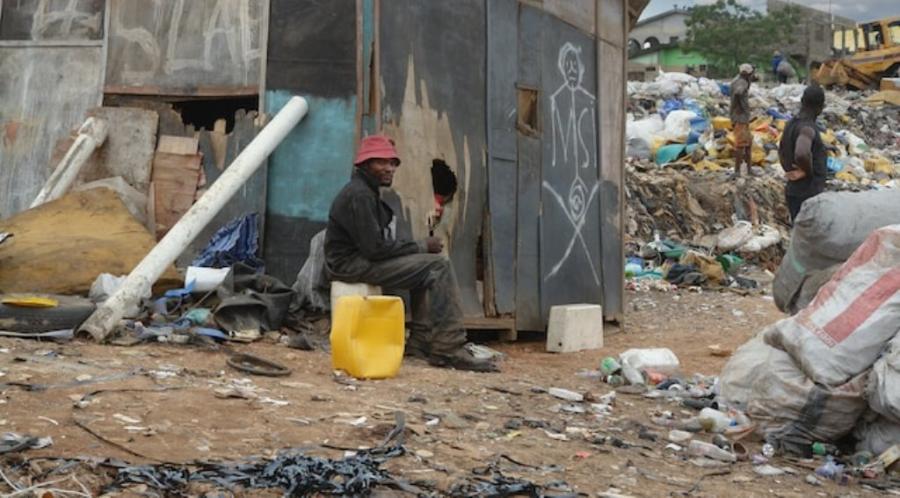
UN’s Sustainable Development Goal (SDG) 1
Sustainable development has been restricted by poverty for ages in many countries. So, United Nations have started Sustainable Development Goal (SDG) 1 with the aim to eradicate extreme poverty by 2030. This aim was started in order to guarantee that everyone, no matter where they may reside, has a chance to live an honorable existence with access to social services and economic opportunities, it is essential that poverty is recognized and tackled.
Read More : 10 Strategies How Chatbots Can Increase ROI on Email Marketing
International Day for the Eradication of Poverty 2024 Theme
“Ending Social and Institutional Maltreatment” is the official theme for the 2024 International Day for the Eradication of Poverty (IDEP). This theme addresses the hidden causes of poverty, especially the mistreatment that poor people face from the outside world.
The objective is to deal with the ways in which poverty continues to exist by unfair policies, discriminatory practices, and negative emotions, eventually resulting in misery and discrimination. The theme follows in line with SDG 16, which calls for a fair, equitable, and peaceful society. In order to develop significant and long-lasting solutions, it highlights how crucial it is to include people affected by poverty in government discussions.
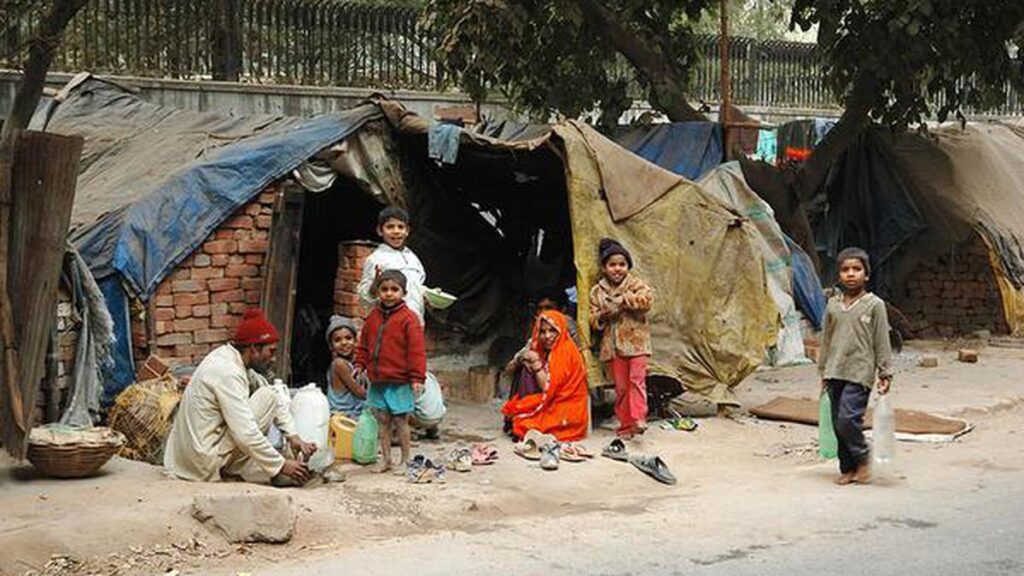
Effects of Poverty on Health, Education, and Well-being
Poverty has profound and far-reaching effects on health, education, and overall well-being, contributing to cycles of disadvantage that are difficult to break.
Health
Due to limited access to clean water, sanitary conditions, nutritious food, and healthcare services, poverty leads to poor health outcomes. Those who live in poverty are more vulnerable to suffer from mental health problems, chronic illnesses, and malnutrition as they cannot afford treatment or preventive services. Additionally, unfavorable living conditions increase the risk of getting illnesses, hence increasing health inequalities.
Read More : How to Save Money on Everyday Expenses in 2024
Education
Lack of school supplies, transportation, or even secure educational environments are just a few of the challenges that poor kids frequently face when hoping to receive an effective education. Reduced learning outcomes, higher dropout rates, and decreased enrollment in schools are all possible consequences of poverty. The cycle of poverty continues to grow by the lack of education as it lowers chances for future employment and income.
Well-being
Poverty can have a devastating emotional and psychological impact. Those who live in poverty commonly suffer from excessive levels of stress, anxiety, and depression as a result in social discrimination and financial instability. They have fewer chances for personal development and a decreased feeling of general well-being as a result of this.






